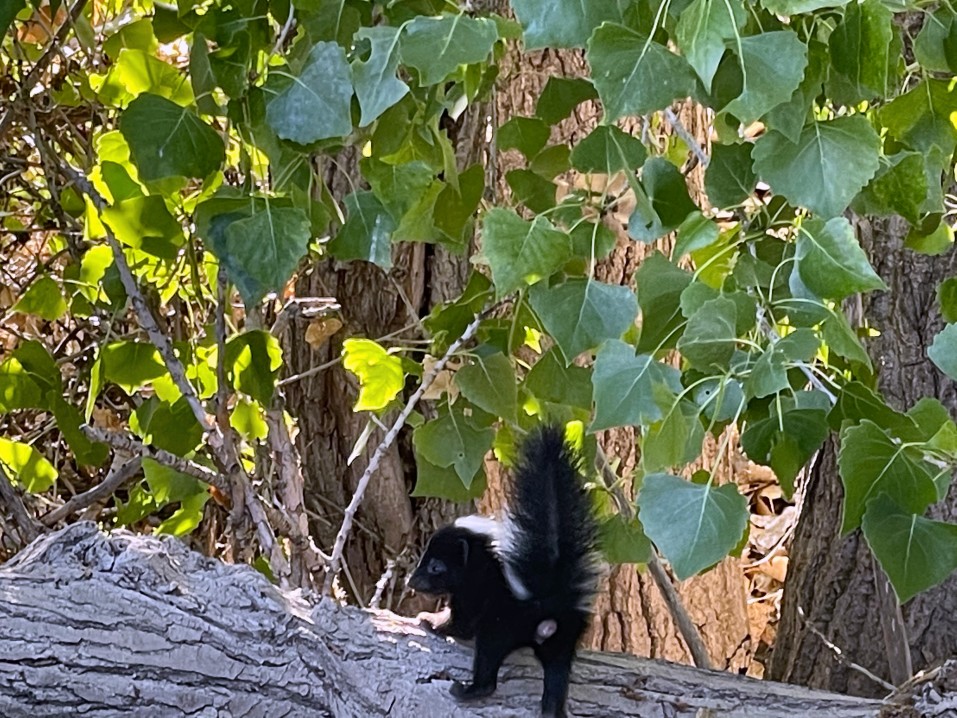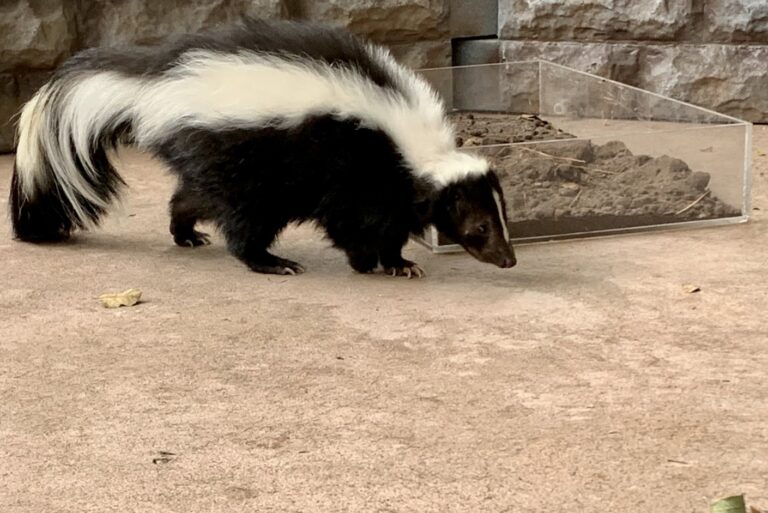 Can Skunks Climb?
Can Skunks Climb?
There are some problems that can make skunks difficult to deal with. The main issue is the odorous musk they can spray when they feel threatened. But you might also be worried that a skunk may climb a fence, tree, wall, or roof, and enter your property.
Skunk’s cat-like body might fool us to think that the animal is proficient at climbing. But in general, skunks cannot climb and jump the same way that cats do, which doesn’t mean they cannot climb at all.
Besides, skunks overall are considered to be one of the poorest climbers among such animals as raccoons, opossums, or squirrels, and they will rarely go up a tree. Their bodies are quite heavy so they are not natural climbers and will take any other alternative to climb a structure. Although they will do so in search of food, or to flee from a predator or other threat.
However, the spotted skunks are lighter in weight than other skunk species and can climb anything if they need to.
On the other hand, the striped skunks are not very good climbers and are more adept at digging than climbing. They are heavier than the spotted skunks and can climb, for example, a wire fence, but may find it difficult because of their long nails.
There is still a lot to learn about skunks and their ability to climb, though. Below, we go into more detail to give you an idea of whether you should worry about skunks climbing onto your property, so keep reading.
Can A Skunk Climb A Tree, Fence, Roof, Wall, Window, Ladder, Or Chicken Wire?
Skunk’s claws are exceptionally sharp, powerful, and long, therefore, these animals are able to dig their way into just about any type of material if they decide to climb. It doesn’t matter whether you have a wooden, chain-link, or some other fence type, a skunk is absolutely able to climb these structures with ease.
Skunks come in many sizes and shapes, and some of them are more adept climbers than others. Many skunk species struggle to climb up fences, but one species, the spotted skunk, is particularly great at fence climbing.
Spotted skunks are known as excellent climbers. As they have smaller nails, they are able to climb trees with ease and can also come head down from the tree. It will even walk along a tree branch that reaches a fence. The spotted skunk can also choose to climb fences willingly and is skillful at climbing any fence, be it wooden or solid metal.
These skunks will readily climb the fence to enter your yard, after which they might hunt small farm animals or your outdoor pet during the night.
Although the striped skunk is also able to climb up fences, boards, and wire mesh, it rarely climbs trees as it is quite a terrible climber. Its long claws are a definite disadvantage for climbing. The animal probably won’t choose to climb anything unless it really feels threatened.

If skunks cannot burrow underground to enter your yard, they will choose to climb up trees to skip fences. As most skunk species are not good climbers, they’re not very likely to get into your attic by climbing on the roof and seek shelter in your home. But occasionally it can happen, especially if it is the spotted skunk. It can climb a fence and use tree branches to enter the roof and attic.
Skunks will climb whenever there’s the need to do so, and sometimes they can do it very well. They are also capable of climbing up the ladder, in and out of the window, and a short brick wall in your house.
However, the more common striped skunk, once it happens to fall down, for example in the window, it has a hard time climbing back out on its own.
Skunks can also climb chicken wire. But they are much more likely to chew through the chicken wire, using their claws and sharp teeth with which they’ll take apart the rather thin metal.
How High Can Skunks Climb?
How high a skunk can climb depends on the species.
Spotted skunks are excellent climbers, and therefore find it easy to climb tall fences and walls, or large trees. They can climb fences that are as high as 6 feet. Therefore, making the fences on your property tall enough is the best strategy to prevent this wildlife from climbing them.
However, the striped skunks, being poor climbers, will struggle to climb over even a 1.5-feet structure.
Also, the type of surface will also affect how high the animal could climb.
Need a skunk removal service at your location? If you worry about getting sprayed and don’t want to handle the animal yourself, hiring a professional to safely, effectively, and humanely trap and eliminate the skunk is your best option.
So contact Westchester Wildlife today as our experienced and highly qualified exterminators provide skunk trapping and removal services in Westchester, Dutchess, and Putnam Counties, NY, as well as in Fairfield County, CT.
